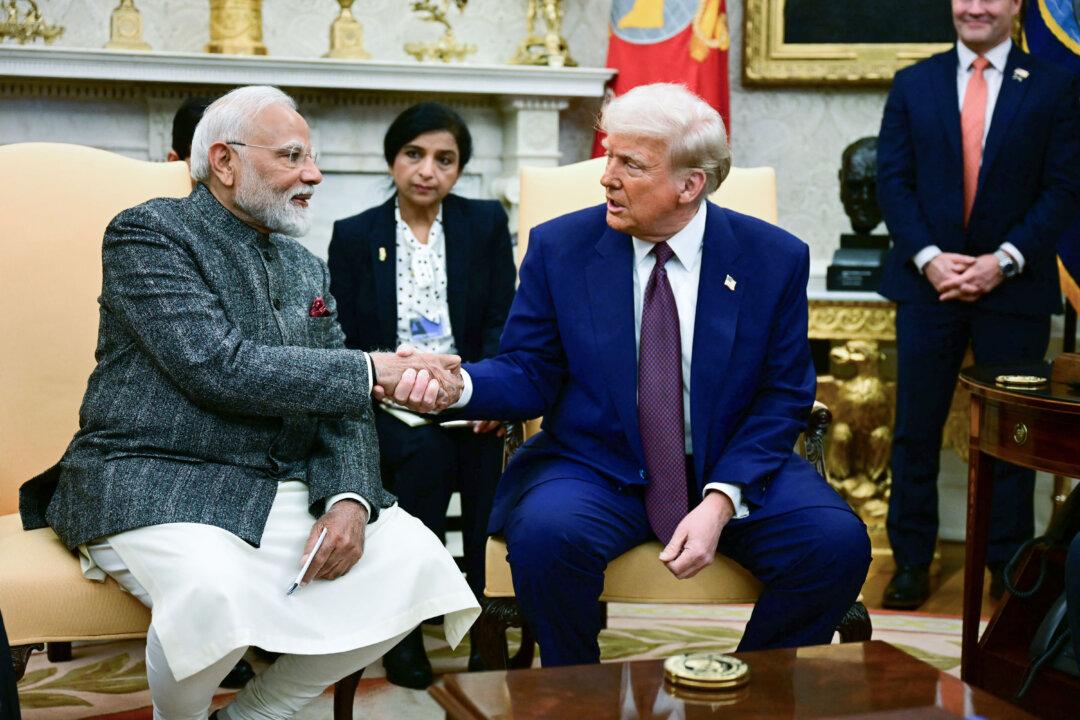NEW DELHI—As U.S. President Donald Trump and India’s Prime Minister Narendra Modi met last week at the White House, their focus was clear.
While ensuring their nations’ best interests, the leaders of the world’s two largest democracies reciprocated each other’s concerns. The result was a step forward in bilateral ties at a time of growing geopolitical worries that prominently include China, analysts say.





